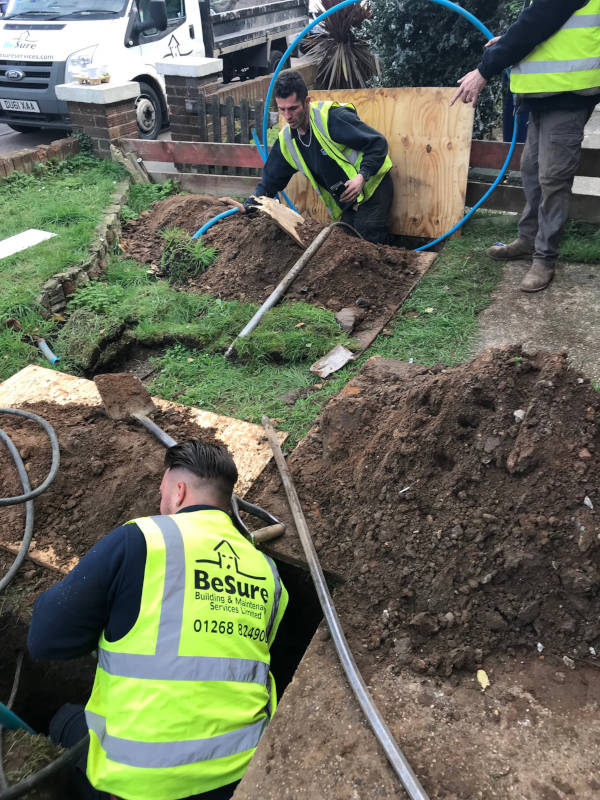Until the late 1970s, the construction industry used installed lead water pipes in new construction. Following concerns about the level of lead in drinking water and the effect this had on people’s health, copper and more recently plastic has been used in lead pipe replacement.
Since 2000, water companies have embarked on a massive program of lead pipe replacement in water mains in order to reduce water wastage as older Victorian mains became increasingly unreliable. Cast iron and lead mains pipes are being replaced with ones produced in plastic but domestic pipes, from the mains into houses have often been left untouched.
BeSure have been carrying out the contract with Thurrock Borough council for over 10 years now replacing the housing stocks old water mains for new polypipe.
Soft Water vs. Hard Water
The type of water you have in your area will affect the amount of lead in your water. If you live in soft water areas, you may possible find lead in your drinking water. If you live in a hard water area, it is likely that deposits on the inside of pipes will stop your drinking water being exposed to lead, but this can lead to decrease in water pressure. In either case, you should consider replacing older lead pipes with newer copper or plastic ones. It’s very easy check if you have lead pipes. A simple, flat bladed screwdriver is all you need. First, locate your water stop cock. Then, simply scratch the pipe on the street side of the supply. If the pipe is soft, easy to scratch and reveals a grey metal then you have lead pipes.
Lead Pipe Replacement
Our experts are all fully qualified plumbers that will be able to replace pipes within your home and from your mains supply with minimal disruption. We will also be able to replace external lead water pipes without using machinery, such as mini diggers to dig up your garden. Instead we use the latest trenchless digging technology. A job that would normally take a week to complete can usually be done in one or two days using this technique.


